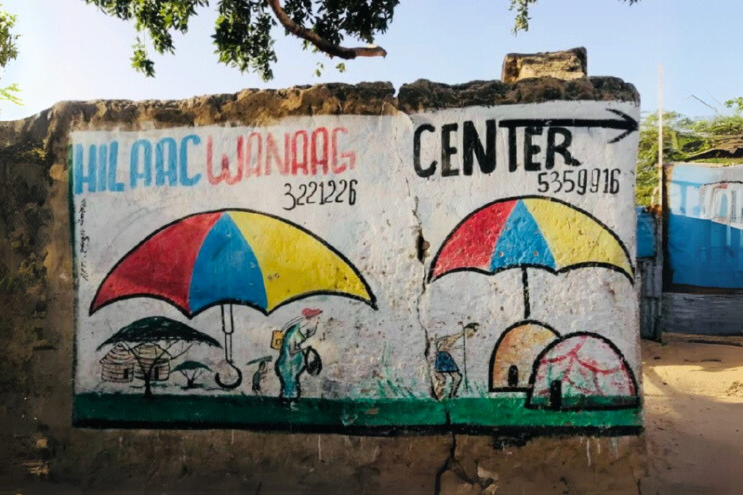Somali Public Agenda
October 26, 2025
Success Stories
Somali Public Agenda
October 26, 2025

Somali Public Agenda’s Policy Lab implemented a service design initiative on inclusion and participation for internally displaced people (IDPs) in Kismayo, Mogadishu, and Baidoa, in collaboration with the Regional Durable Solutions Secretariat (ReDSS) in 2023.
During the validation workshop held in Mogadishu, a camp leader from the Hillaac Wanaag Umbrella shared an inspiring story about how they had purchased a piece of land through monthly contributions known as ayuuto. The SPA team found this an intriguing and successful case study worthy of further research and wider dissemination for the public and among governmental and non-governmental organizations working on durable solutions in Somalia. This case study highlighted the resilience of IDP communities in a challenging environment such as Mogadishu’s outskirts, where access to land is scarce and expensive.
Despite lacking funding for this, SPA Policy Lab started a further study on its own initiative. After months of data collection, analysis and writing up of the study findings, SPA published a policy paper titled, “Resilience and Self-Reliance Among Somalia’s Displacement-Affected Communities Through a Community-Led Approach” in March 2025 in both the English and Somali languages.
During the data collection phase, the SPA team discovered that young students in the Hillaac Wanaag IDP center were facing challenges in sitting for the grade-eight national examinations since they couldn’t pay the exam fees. Although the Federal Ministry of Education, Culture, and Higher Education has directed private schools not to levy fees on students sitting for national exams, some schools continued to do so, citing the need to pay teachers during holiday periods. The students from the Hillaac Wanaag Umbrella were asked to pay fees they could not afford.
The SPA team leveraged its connection with the Benadir Regional Administration (BRA)’s Directorate of Education. The directorate connected the SPA team to the Federal Ministry of Education, Culture, and Higher Education, which provided support to the IDPs in obtaining necessary clearance cards.
Based on the Benadir Region’s grade eight exam results in August 2025, 94% of the 35 students who sat for the exam from Hillaac Wanaag Umbrella passed the test. Hillaac Wanaag Umbrella residents have previously decided to prioritise education over immediate relief such as food. Inability to sit for exams after years of hardship and studying would have broken the spirit for education and a brighter future for the young generation. This is a group that could be susceptible to drugs and youth gangs without the proper direction that can be provided by schooling. It was a small effort from SPA that had a positive impact on these 35 young students and their parents. This would not have been possible if SPA did not start a further independent study on how the Hillaac Wanaag Umbrella of IDPs works and their self-reliance scheme.
Moreover, the policy paper that we published about Hillaac Wanaag Umbrella has also been widely shared and disseminated on BBC Somali, Radio Ergo, and SPA’s Adeeg Wanaag Podcast. The paper was also presented during a government-to-government learning exchange in Dhuusamareeb, Galmudug State, where the federal and state governments, as well as international NGOs, gathered to seek impactful durable solutions. The government and international NGOs have highlighted Hillaac Wanaag Camp’s initiative as a successful local intervention.
The voluntary intervention taken by SPA sets an example for organizations and individuals to take action in supporting minority and marginalized displacement-affected communities, and raise their voices in government offices. This particular advocacy effort by SPA on IDP education also reinforces the concept of social inclusion and participation that we have co-designed with ReDSS. This emphasises the empowerment of displacement-affected communities and establishment of exchange with them in order to facilitate the services and protection they need from government institutions.
Somali Public Agenda (SPA) is a non-profit, non-partisan, and independent public policy and administration research and action organization based in Mogadishu. It aims to advance understanding and improvement of public policy and services in Somalia through evidence-based research and analysis, dialogue, policy and service design, and training.
Stay updated on governance and public services in Somalia!